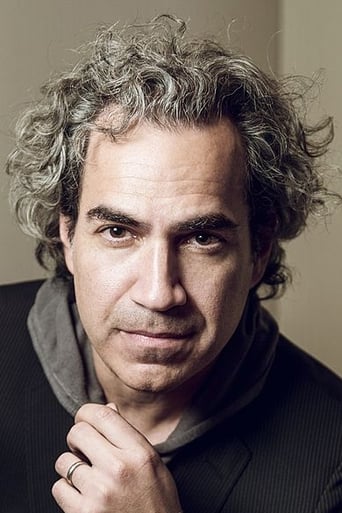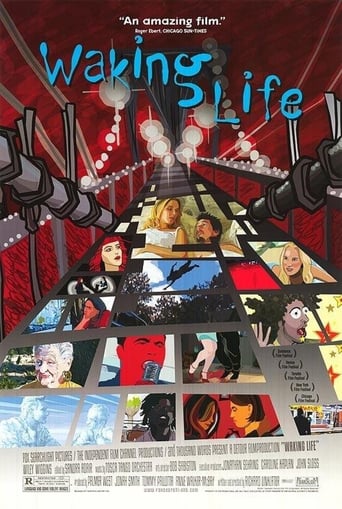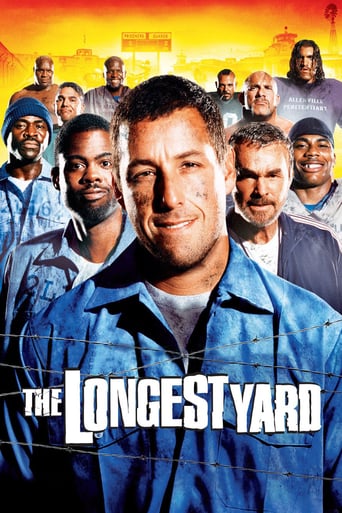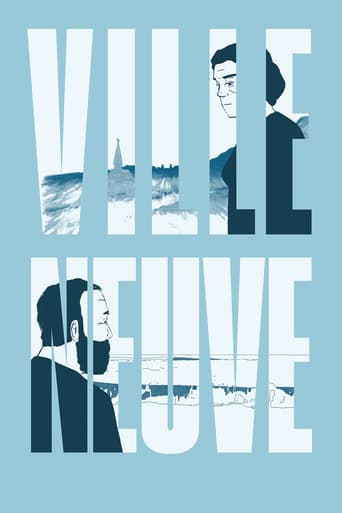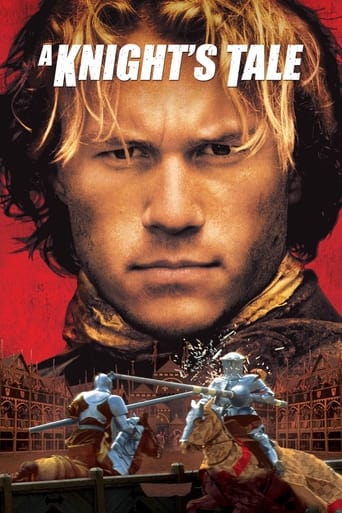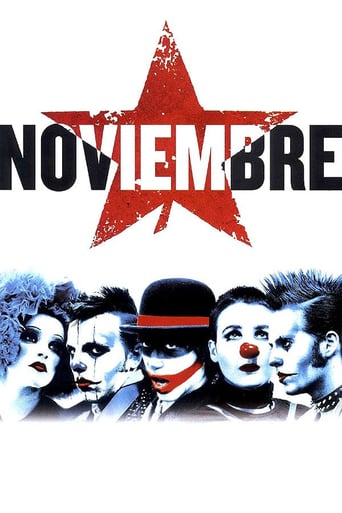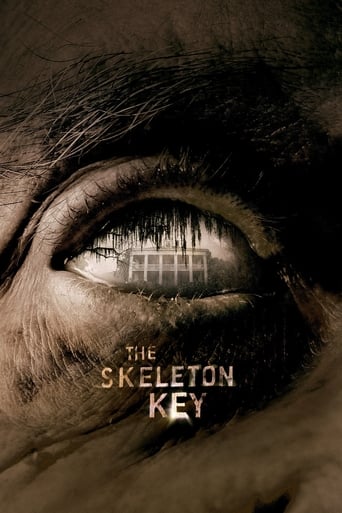
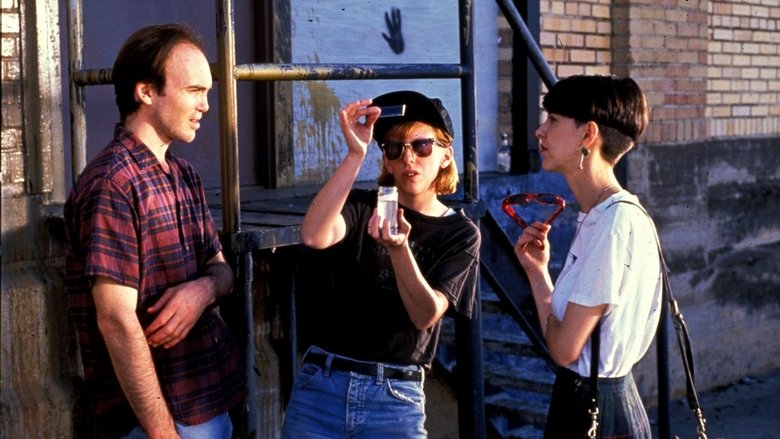
Slacker (1991)
Austin, Texas, is an Eden for the young and unambitious, from the enthusiastically eccentric to the dangerously apathetic. Here, the nobly lazy can eschew responsibility in favor of nursing their esoteric obsessions. The locals include a backseat philosopher who passionately expounds on his dream theories to a seemingly comatose cabbie, a young woman who tries to hawk Madonna's Pap test to anyone who will listen and a kindly old anarchist looking for recruits.
Watch Trailer
Cast
Similar titles
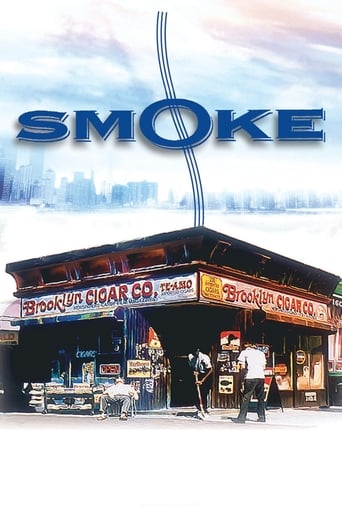

Reviews
Don't listen to the negative reviews
A Masterpiece!
At first rather annoying in its heavy emphasis on reenactments, this movie ultimately proves fascinating, simply because the complicated, highly dramatic tale it tells still almost defies belief.
The film never slows down or bores, plunging from one harrowing sequence to the next.
Richard Linklater is a director well known for making films revolving around personal relationships, philosophy, and how people are affected by the passage of time. For this, he has made some of very memorable movies in the past including the coming-of-age comedy 'Dazed and Confused', the romantic trilogy starring Ethan Hawke and Julie Delpy, and the critically acclaimed masterpiece 'Boyhood'. Rewinding back to the early 90s, Richard Linklater directed his first film centering on the social politics of citizens in Austin, Texas during the the Post-Baby boom period. This movie follows various unnamed characters and scenes dealing with seemingly random events around the city of Austin, including a young passenger (played by Richard Linklater) in a taxi car yattering about philosophy of dreams and reality, a young woman wandering around town trying to sell Madonna's Pap lipstick, a man lecturing on the existence of UFOs, a group of friends chatting about the conspiracy of John F. Kennedy's assassination, an elderly man who bonds with a criminal after thwarting him from robbing his house, and many other social misfits. The film focuses on each of these characters for a few minutes and their actions, and then cuts away to a new cast of characters, never showing them again.This film is a highly unique movie with an interest that is incredibly difficult to describe, even for fans of Richard Linklater's other works. The concept of this film is that it doesn't necessarily have a plot of any sort, but basically explores different aspects of a society and creates interest through the intriguing and thought-producing topics of their conversations. Topics such as philosophy, terrorism, conspiracy theories, and politics are placed in the institutions of the conversations. As we listen to their thoughts on the topics, the character development comes how the conversations flow and how the characters interact with each other, to make viewers engage with the characters. Some of the conversations warrant some laughter, while other tackles on more subtle material such as in one scene with the man chatting on the existence of extra terrestrial life, or the scene with the teenagers talking about their beliefs dealing with JFK's assassination. The acting works quite well and the cinematography stays solid. The whole movie plays like a mockumentary about society functions. The movie is an interesting work of art, but can only interest those who understand the direction Linklater is taking this film. The only major flaw with the film is definitely the abandoned possibilities that Linklater could have done with the concept to make the film capture better interest.Slacker is very unique and inspiring piece of work, but one that will definitely not appeal to everyone. Those who go into this expecting a plot will be significantly disappointed. But those who are able to understand the direction of this movie may enjoy this movie. This is a movie that doesn't tell a story, but rather explores aspects of societal and social satire.
Obviously for those wondering about this film, you pretty much get the gist of what it's about. It's definitely experimental, even moreso than what I thought. Because of the poster you assume there's still a lead protagonist, but nope. It really only follows these people and what they believe in, their everyday activities, their life and their culture. A lot of this is really funny, and much of it also sort of hard to get into simply because of the format. I recommend this, but with reservations. I don't think it's one of Linklater's best films, but one of his mot admirable and probably one of his most influential as well, if not the most.
So. We're following a bunch of people that's slacking around in different ways. Everyone seems very confused and totally absorbed in their own worlds... everyone thinking that working is a bad thing... not realising that they couldn't slack if there was not someone who worked in the wheels of society...because then their would be no society for them to slack in. Simple logic.The good thing is the conversations you get out from every meeting(or monoloug). They have a good flow and some great acting, even if you don't agree about everything they're saying. The film don't try to tell you what is right or wrong, you simply get to listen to people talking about different subject. So in a sense there's no real plot except random people talking and slacking. Still you get a sense of the movie moving forward trough a good camera-work and editing. The movie is a shining example of people that have lost their power and are totally in the hands of their whims and feelings. It also gives a picture about the desperate, and resigned, look on life that flowed in the 90's...But there's also the questioning of everything(from some people), which is a good thing. Never take anything for granted that you haven't critically researched and taught about, grinded in your head so to speak. And that's the little bit of light that shines out from these slackers... some of them questioning everything, and some of them becoming outsiders because of it. Tough at one point you gotta make up your mind, and decide what your own truths are. Or it will be like in "Shawshank redemption", you either get busy living or get busy dying(inside).Cheers
I'm a slacker by definition. At least, director Richard Linklater's stunningly sympathetic definition which is, "people who are ultimately being responsible to themselves and not wasting their time in a realm of activity that has nothing to do with who they are or what they might be ultimately striving for." I find that definition to be a pleasantly original one to a word often used to demonize those seemingly directionless and useless in the world.This is one of the many signs that Richard Linklater doesn't pretend to resonate with the adolescent community, but really does resonate and understand them, much like famous auteurs John Hughes and Kevin Smith. All three men know what it was like growing up geeky in suburbia, and all of them seem to have an instant pipeline to the minds and thoughts of adolescence and young adults. It's also no coincidence why Hughes greatly owned the teen movie demographic in the 1980's, and Linklater and Smith would go on to greatly define the nineties independent cinema by pioneering it and creating characters with meaning, opinions, and dialog that was sharp and gripping.Richard Linklater's Slacker occupies a structure that is primitive, unique, and relatively quiet. It involves a day in the life of random twentysomethings in the quiet, college town of Austin, Texas through a rhythmic and refreshing lens of cinematic poetry. We start out by seeing Linklater's character catch a cab and go off on a tangent, rambling to the uninterested cab driver about how he feels that every time we are faced with a decision, we have the opportunity to go off into a separate reality and some more convoluted scenarios he'll preach for the next two or three minutes. This is the taste of the elegance in the dialog we are about to endure for one hundred minutes.After we spend a few minutes with this guy, he gets out of the cab and walks a little before someone spots a woman who has just been hit and run. The camera pans back further and further, going in a circle, and then we see the same hit and run driver pull into his flat and sit in front of a few candles in a form of prayer or meditation, before he is eventually nabbed and arrested. The screenplay then sees two men walk by, one older and one younger, as the older one forces conversation with the younger one about how one must question everything they're told and rambles on for a few minutes about conspiracy theories, the moon landing being fake, etc. We then pick up someone else in the streets and the journey unfolds.The catch here is that the people we meet and focus on for a brief amount of time are talking about subjects we're surprised they even know about. "Slackers," themselves, are viewed as out of touch, lazy, careless, unimportant, and indifferent on many issues, but Linklater depicts them to be very knowledgeable people, possibly more informed than the talking heads on TV, who don't want to waste time bothering themselves with people or things that won't further them in life. They are far too smart for that.The screenplay, penned by Linklater as well, doesn't forcefully connect these stories, but ostensibly gets sidetracked when focusing on one. When the time is up for a person, the camera will swing around to someone else in the same shot. The film is simply in love with people and their thoughts, and subtly asks itself just before focusing on them for a minute or two, "I wonder what he is thinking?" This method could seem to birth issues such as laziness in writing, lack of ideas, or whatever, but I feel when a film is inherently plot less, it can sometimes accomplish more than a story that is locked down on a grid of clichés or story odds and ends.While the film seems to lack any and all themes or morals, one of the ones I cautiously picked up along the way was not only the love for the everyman, but the love for the opinions of the everyman. We often pass people, whether it be on the street, waiting in line at the grocery store, or simply strolling on a path we don't usually take. Sometimes, we may think to ourselves when we seem someone, what are these people's story? How did they get here, what do they do, what are their opinions, what have they accomplished, and simply, are they satisfied with life? Linklater knows how to accumulate this idea into a very well constructed film that, even if a little long, still doesn't manage to abuse the idea of human interest, pureness, and the importance of clever, engaging dialog in cinema.NOTE: Director Kevin Smith has gone on record saying that it was Linklater's Slacker that served as the direct influence for his directorial debut, Clerks (my self-proclaimed favorite film). Both films have a plethora of heart and intelligence, but I find Clerks to be a bit more focused and a bit more easier to endure. Slacker might need a few more viewings on my part.Starring: Richard Linklater, Kim Krizan, Marc James, Stella Weir, John Slate, Louis Mackey, and Teresa Taylor. Directed by: Richard Linklater.


